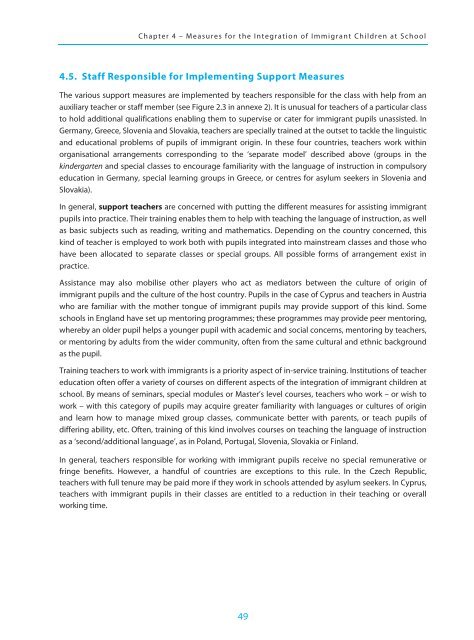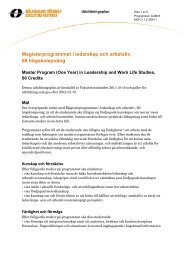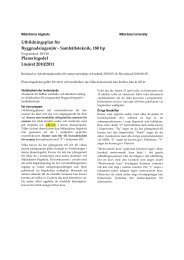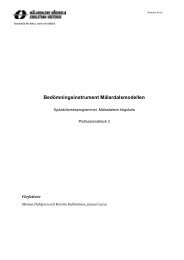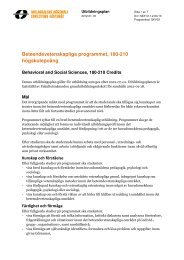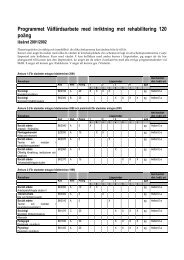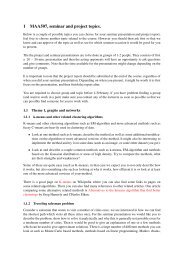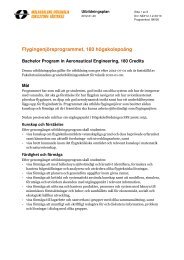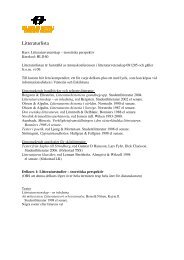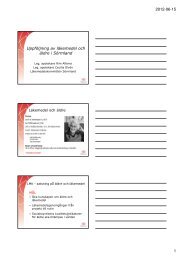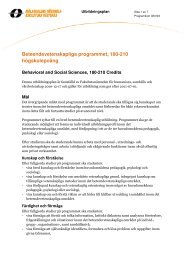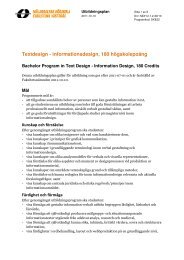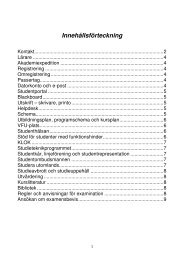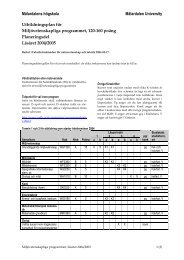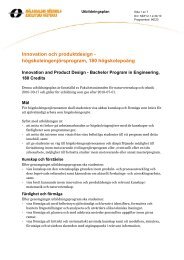Integrating Immigrant Children into Schools in Europe
Integrating Immigrant Children into Schools in Europe
Integrating Immigrant Children into Schools in Europe
Create successful ePaper yourself
Turn your PDF publications into a flip-book with our unique Google optimized e-Paper software.
Chapter 4 – Measures for the Integration of <strong>Immigrant</strong> <strong>Children</strong> at School4.5. Staff Responsible for Implement<strong>in</strong>g Support MeasuresThe various support measures are implemented by teachers responsible for the class with help from anauxiliary teacher or staff member (see Figure 2.3 <strong>in</strong> annexe 2). It is unusual for teachers of a particular classto hold additional qualifications enabl<strong>in</strong>g them to supervise or cater for immigrant pupils unassisted. InGermany, Greece, Slovenia and Slovakia, teachers are specially tra<strong>in</strong>ed at the outset to tackle the l<strong>in</strong>guisticand educational problems of pupils of immigrant orig<strong>in</strong>. In these four countries, teachers work with<strong>in</strong>organisational arrangements correspond<strong>in</strong>g to the ‘separate model’ described above (groups <strong>in</strong> thek<strong>in</strong>dergarten and special classes to encourage familiarity with the language of <strong>in</strong>struction <strong>in</strong> compulsoryeducation <strong>in</strong> Germany, special learn<strong>in</strong>g groups <strong>in</strong> Greece, or centres for asylum seekers <strong>in</strong> Slovenia andSlovakia).In general, support teachers are concerned with putt<strong>in</strong>g the different measures for assist<strong>in</strong>g immigrantpupils <strong><strong>in</strong>to</strong> practice. Their tra<strong>in</strong><strong>in</strong>g enables them to help with teach<strong>in</strong>g the language of <strong>in</strong>struction, as wellas basic subjects such as read<strong>in</strong>g, writ<strong>in</strong>g and mathematics. Depend<strong>in</strong>g on the country concerned, thisk<strong>in</strong>d of teacher is employed to work both with pupils <strong>in</strong>tegrated <strong><strong>in</strong>to</strong> ma<strong>in</strong>stream classes and those whohave been allocated to separate classes or special groups. All possible forms of arrangement exist <strong>in</strong>practice.Assistance may also mobilise other players who act as mediators between the culture of orig<strong>in</strong> ofimmigrant pupils and the culture of the host country. Pupils <strong>in</strong> the case of Cyprus and teachers <strong>in</strong> Austriawho are familiar with the mother tongue of immigrant pupils may provide support of this k<strong>in</strong>d. Someschools <strong>in</strong> England have set up mentor<strong>in</strong>g programmes; these programmes may provide peer mentor<strong>in</strong>g,whereby an older pupil helps a younger pupil with academic and social concerns, mentor<strong>in</strong>g by teachers,or mentor<strong>in</strong>g by adults from the wider community, often from the same cultural and ethnic backgroundas the pupil.Tra<strong>in</strong><strong>in</strong>g teachers to work with immigrants is a priority aspect of <strong>in</strong>-service tra<strong>in</strong><strong>in</strong>g. Institutions of teachereducation often offer a variety of courses on different aspects of the <strong>in</strong>tegration of immigrant children atschool. By means of sem<strong>in</strong>ars, special modules or Master’s level courses, teachers who work – or wish towork – with this category of pupils may acquire greater familiarity with languages or cultures of orig<strong>in</strong>and learn how to manage mixed group classes, communicate better with parents, or teach pupils ofdiffer<strong>in</strong>g ability, etc. Often, tra<strong>in</strong><strong>in</strong>g of this k<strong>in</strong>d <strong>in</strong>volves courses on teach<strong>in</strong>g the language of <strong>in</strong>structionas a ‘second/additional language’, as <strong>in</strong> Poland, Portugal, Slovenia, Slovakia or F<strong>in</strong>land.In general, teachers responsible for work<strong>in</strong>g with immigrant pupils receive no special remunerative orfr<strong>in</strong>ge benefits. However, a handful of countries are exceptions to this rule. In the Czech Republic,teachers with full tenure may be paid more if they work <strong>in</strong> schools attended by asylum seekers. In Cyprus,teachers with immigrant pupils <strong>in</strong> their classes are entitled to a reduction <strong>in</strong> their teach<strong>in</strong>g or overallwork<strong>in</strong>g time.49


